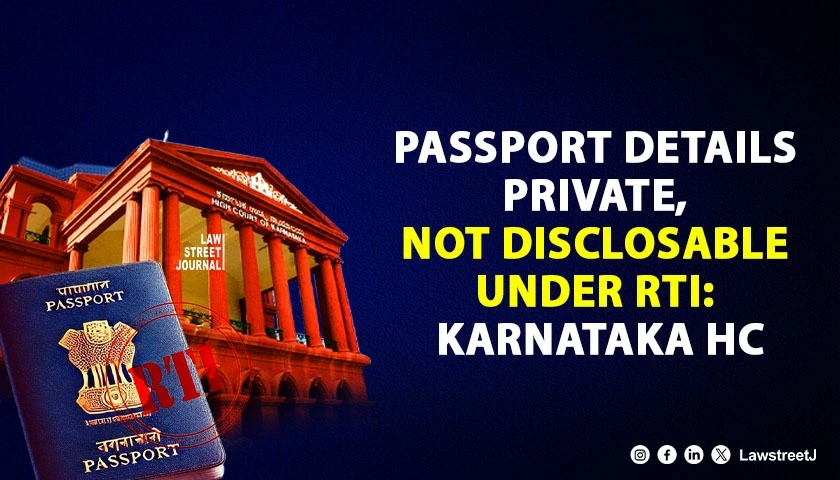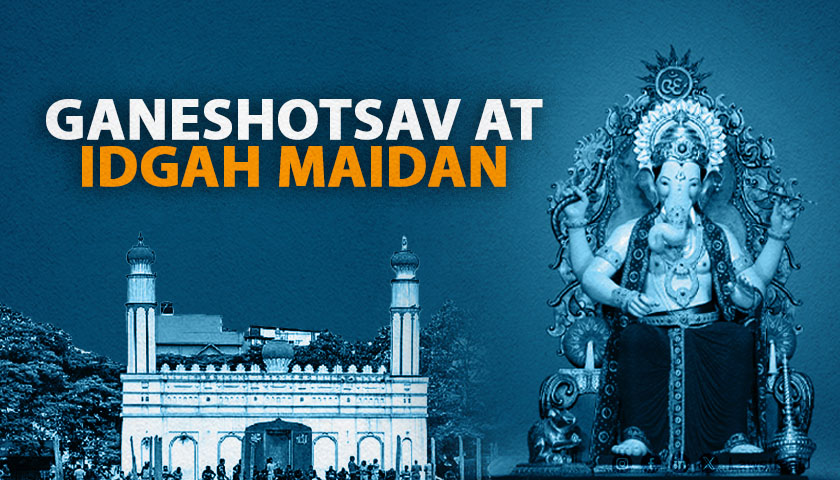Karnataka: The Karnataka High Court has held that information relating to the passport of a person accused in a cheque-dishonour case, including a copy of the passport, is personal in nature and cannot be disclosed under the Right to Information Act, 2005.
Justice Suraj Govindaraj made this observation while dismissing a writ petition filed by Prakash Chimanlal Sheth, who sought disclosure of passport details of an accused in proceedings under Section 138 of the Negotiable Instruments Act, 1881. The petitioner had approached the High Court after his RTI request and subsequent appeals were rejected by the authorities and the State Information Commission.
The petitioner had filed a cheque-bounce complaint before the JMFC Court, Puttur, Dakshina Kannada. When the accused absconded, a lookout circular (LOC) was issued, leading to his brief detention at Mumbai International Airport. The petitioner then filed an RTI application seeking a copy of the accused’s passport, the date of issuance of the LOC, and all related records maintained by the Superintendent of Police, Mangaluru.
The Public Information Officer (PIO) rejected the request citing Section 8(1)(h) of the RTI Act, stating that disclosure would impede the investigation, and Section 24(4), noting that the Special Branch was exempt from the Act under a State Government notification. The State Information Commission upheld the rejection, observing that passport information constitutes personal data and falls within the constitutional right to privacy recognised by the Supreme Court in Justice K.S. Puttaswamy v. Union of India, (2017) 10 SCC 1.
The Court observed that passport details are private to an individual and that disclosure to a third party could endanger the person’s safety. Justice Govindaraj stated, “The details of a passport are private to a person and, if made available to any third party, including a complainant in a cheque-dishonour case, it could cause danger to the life or physical safety of the concerned person.”
Holding that the exemption under Sections 8(1)(h) and 24(4) of the RTI Act was properly invoked, the Court found no infirmity in the orders of the authorities. However, it clarified that if the petitioner required the information for use in proceedings under Section 138 NI Act, he could apply before the trial court for summoning the documents.
With these observations, the petition was dismissed.
Case Title: Prakash Chimanlal Sheth vs. State of Karnataka & Ors.



![Karnataka High Court: Cabinet Rank Status Not Equivalent to Ministerial Position [Read Order]](/secure/uploads/2023/09/lj_2318_fc1b99b7-aeed-472b-836e-33750bedb394.jpg)


![Woman living in adultery cannot claim maintenance: Karnataka High Court [Read Order]](/secure/uploads/2023/10/lj_3083_Women_living.jpg)




